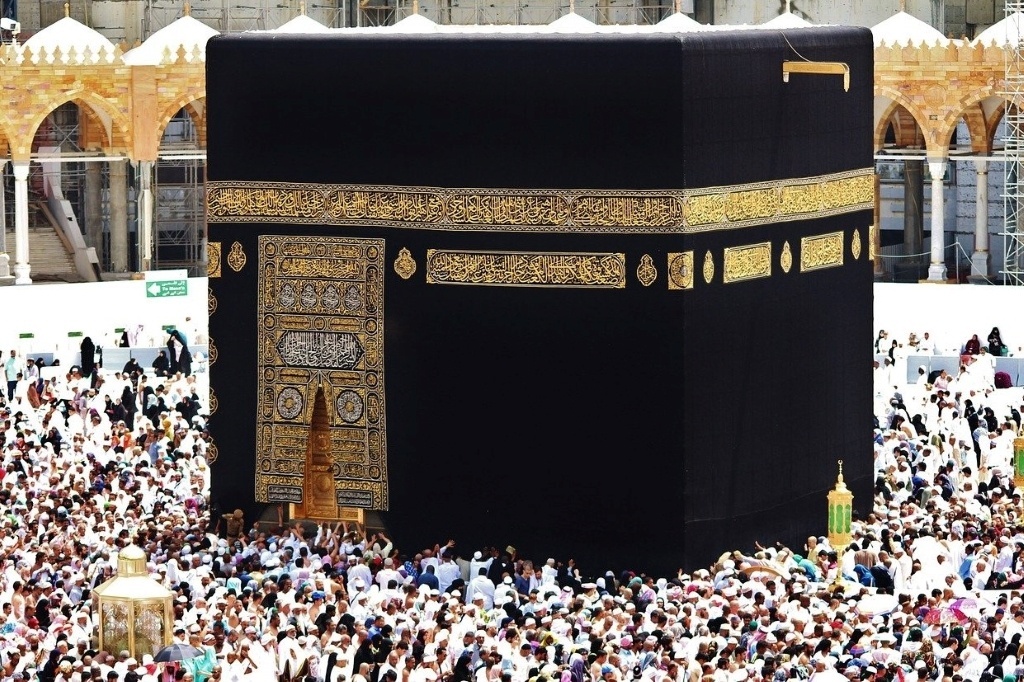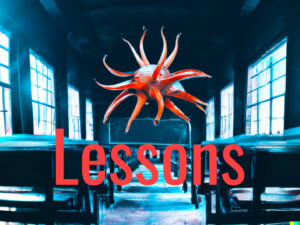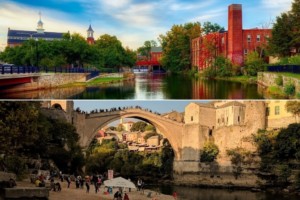Can transformational tourism help solve the post-COVID mental health crisis?

Throughout history our species has transformed where we’ve travelled, been transformed by travel, and travelled to transform. There is little doubt that many of us are happiest when we are on the move. Is tourism scholar Rohan Bhalla correct in thinking that our industry could be part of the solution to the world’s mental health crisis? It’s a “Good Tourism” Insight.
The coronavirus pandemic has paralysed the socioeconomic systems of the world. At writing, some societies are moving again while others continue to be held hostage in lockdowns of varying intensity, including my own nation of India. While much of the focus has been on COVID-19 and economic recovery, another silent and insidious pandemic has been taking its toll.
Millions of confirmed COVID-19 cases and related deaths have been reported from more than 216 countries and territories. Measures like lockdowns, travel bans, and social distancing have confined people to their homes and even left some stranded in foreign lands. Fears of infection, the loss of loved ones, uncertainty, and reduced social connections have had devastating effects on the mental health of people. Unemployment, alcoholism, domestic violence, loan defaults, homelessness, and rapid descents into poverty have upended lives.
All of these cascading consequences of the pandemic have likely triggered chronic mental health issues among many people, which may very well bring more despair and death in the future than even COVID-19.
The Secretary-General of the United Nations has written that tackling COVID-19 is the priority for all countries, but that the next steps would be to address the social problems and formulate economic recovery plans. However, of all the social problems, the health and well-being challenges of deteriorating mental health are among the more serious and pose a great long-term threat. Perhaps the psychological aftermath of the present pandemic will be long-lasting.
Also see Paul Rogers’ “GT” Insight
“Why build well-being into destination resilience and tourism recovery?”
The coronavirus pandemic has exposed mental health and well-being challenges that the world has ignored for a long time. If fully accounted for, mental ill-health would represent a large proportion of the global burden of disease (MHIN [PDF hosted offsite]). Depression, anxiety disorders, schizophrenia, dysthymia, and bipolar disorders are leading causes of years lived with disability. Suicide is the second highest cause of premature mortality in the world (WHO); around 800,000 lives lost and most of them are young people and older women (WHO).
The economic cost of mental health issues is also a significant concern. Twelve billion working days are lost because of mental health issues every year (MHIN). Depression and anxiety alone cost USD 1 trillion per year to the global economy (WHO). Most countries, particularly developing and underdeveloped countries, spend less than 1% of their total GDP on healthcare (WHO). And a fraction of that is on mental healthcare. For instance, India spends only 0.06% of its health budget on mental health program. And healthcare only accounts for 1.2% of GDP.
Also see Larry Dwyer’s “GT” Insight
“Tourism & hosts’ well-being: Moving beyond GDP towards a better life”
Considering the acute shortage of psychologists, psychiatrists, psychiatric nurses, and counsellors worldwide, there are serious concerns about how to control the silent pandemic of mental illness which has only intensified during the coronavirus pandemic. Present and future mental health challenges demand non-pharmaceutical interventions that can mitigate the severity of mental health anomalies.
The question is, do we have anything available to us that can help?
Transformational tourism might be helpful for mental health
Jeffrey Kottler was the first person to use the term ‘transformative’ in relation to tourism as he realised that travel has the potential to provide therapeutic interventions, alter perceptions, and ease the burden of living. Kottler found that travel clears mental fog, facilitates decision-making, offers healing from past experiences, expands the consciousness, and instils a greater appreciation of the good in life.
Transformational tourism is eudaimonia-based travel. Founded on the psychology of happiness and emotional well-being, it can be used as a mechanism for promoting mental health and well-being; opening up a new spectrum of well-being interventions that will allow people to enhance their consciousness and imbibe spiritual experiences.
Also see Ivana Damnjanović’s “GT” Insight
“Travel, stories, education: The keys to happiness?”
In addition to enhancing general well-being, transformational tourism may offer a therapeutic intervention effective against mild and moderate mental health problems. The emerging field possesses the potential to help manage the growing menace of the mental health crisis. More research is needed.
Examples of transformational tourism products offering potential include ecotherapy and traditional practices like shinrin yoku (Japanese forest bathing), which leverage nature as a catalyst for transformation. Workshops in scenic landscapes that allow one to pursue hobbies also have a healing quality. Writing and meditation workshops in the Himalayas and musical events like the Sula Festival in Nashik, India, also offer relief from stress for many people. For LGBTQ+ people who are vulnerable to mental health issues, an event tailored to them such as the Gay Ski Week in Queenstown, New Zealand may offer relief from the discrimination and trauma they may experience in everyday life.

Transformational tourism aligns the mind, body, and soul. As evidenced by the examples I’ve offered above, it is not about reconnecting with religion or community, although either might be useful for some people. It is about centring oneself, exploring and knowing oneself through introspection, improving connection with oneself as well as one’s connection to the world. Transformational tourism experiences may simply offer the time and space for life-changing decision making.
Tourism experiences that are developed with the express purpose of being transformational allow for self-exploration more than geographical exploration or cultural exploration. As such they can be offered to domestic markets and to those who cannot afford the time or expense to undertake long-distance travel.
Also see Tanner C Knorr’s “GT” Insight
“Tourism infrastructure, well-being, & how to ‘build back better’ for all”
All these characteristics make transformational tourism a potential remedy for mental health anomalies.
Transformational travel for well-being is not new
Transformational travel is not new. It is ancient. However, it has evolved along with changes in civilisation, social structures, demography, belief systems, and lifestyle.
For example, people of modern societies, particularly in urban environments, often feel alienated and disconnected. Among those who can afford to, travel has always been an escape from that feeling; an opportunity to ‘break free’. Indeed in many societies, travel abroad has become a secular rite-of-passage for young people who want to ‘find themselves’ or ‘find purpose’. Older adults too, who feel lost, depressed, or angry will (often unknowingly) ‘self-medicate’ with travel if they can afford it.
During troubled times, such as a pandemic in which freedom of movement is curtailed, earlier generations might have taken refuge in the divine. Current generations however are more inclined to want to tear down the social constructs that they believe limit their sense of personal expansion. Yet their ultimate quest for meaning and purpose in life is identical. This quest is easily undertaken through travel, so we should expect a surge when borders reopen.
The prospects for transformational tourism products that can help people heal and grow spiritually and emotionally are very positive indeed. And, to the extent that can help combat future mental health and well-being crises, the very best of them may become useful items in the non-pharmaceutical mental healthcare kit.
What do you think? Share a short anecdote or comment below. Or write a deeper “GT” Insight. The “Good Tourism” Blog welcomes diversity of opinion and perspective about travel & tourism because travel & tourism is everyone’s business.
Featured image (top of post): Cocooned for now. Preparing to fly. Image by GLady (CC0) via Pixabay.
About the author

Rohan Bhalla is a Senior Research Fellow and a PhD candidate at the Department of Tourism and Hospitality Management, Jamia Millia Islamia, New Delhi, India. A Gold Medallist in Tourism and Management Studies, Mr Bhalla has published in journals and books around areas of his expertise, which include qualitative research and multi-disciplinary approaches to real-time social sciences projects. Rohan’s primary interests lie in philosophy, spirituality, transformational tourism, regenerative tourism, rural tourism, and gender studies. He also takes an interest in behavioural sciences, emotional and spiritual intelligence, psychology, communication, and personality development programs. Rohan believes in the “transformational power of education and the role of the teacher as a moral propagator of society to make the world a better place to live”.





